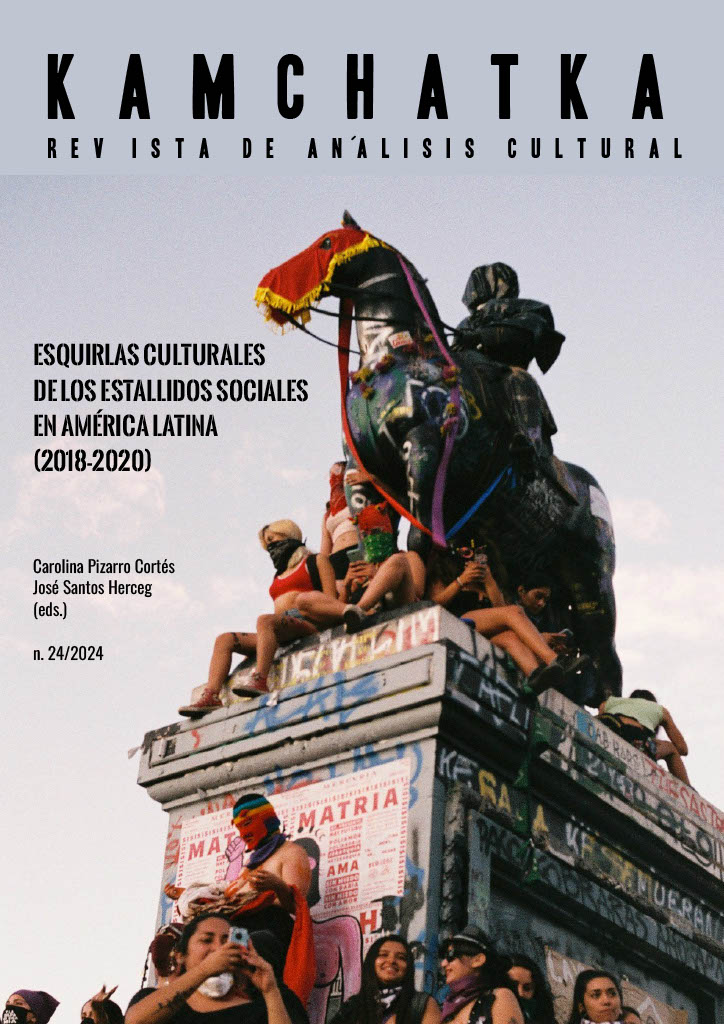Debunking Common Beliefs about Stronism. The Narrative of the MEVES Virtual Museum, Memory and Truth about Stronism
Keywords:
memory, narrative, museums, common beliefs, Paraguay Abstract
Abstract
MEVES Virtual Museum, Memory and Truth about Stronism, was created in 2008 to disseminate the Final Report of the Truth and Justice Commission of Paraguay. It serves as both a repository and a space for the dissemination of memory, becoming a social actor of memory. Using this format, the Commission’s research results can be brought closer to young people entering politics, crossing geographical boundaries. By providing a narrative that condemns human rights violations committed during Alfredo Stroessner’s dictatorship, the Virtual Museum seeks to build a moral community, discussing some of the common sense that exists in Paraguayan society in relation to the economic and political situation and the naturalization of certain corruption. The purpose of this article is to examine the narrative of MEVES in order to understand what elements articulate its memorial proposal, what meanings it produces about the past, and what extension they have towards the future.
 Downloads
Downloads
 References
References
Comisión Verdad y Justicia (2008). Informe Final. Disponible en https://www.codehupy.org.
py/verdadyjusticia/
CONADEP (2023). Nunca Más: Informe de la Comisión Nacional sobre la Desaparición de Personas. Buenos Aires: Eudeba.
Crenzel, Emilio (2014). La historia política del Nunca Más: la memoria de las desapariciones en la Argentina. Buenos Aires: Siglo Veintiuno Editores.
González Kriskovich, Estéban (2012). “La memoria colectiva como propaganda de la democracia”. Tesis de Licenciatura en Comunicación, Universidad de San Andrés, Buenos Aires.
Jaspers, Karl (1998). El problema de la culpa. Sobre la responsabilidad política en Alemania. Barcelona: Alianza.
Jelín, Elizabeth (2002). Los trabajos de la memoria. Buenos Aires: Siglo XXI.
Museo virtual MEVES www.meves.org.py
Pollak, Michael (2006). Memoria, olvido, silencio. La producción social de identidades frente a situaciones límite. La Plata: Ediciones Al Margen.
Sonderéguer, María (2001). “Promesas de la memoria: justicia y justicia instaurativa en la Argentina de hoy”. Groppo, Bruno y Flier, Patricia (eds). La imposibilidad del olvido. Recorridos de la memoria en Argentina, Chile y Uruguay. La Plata: Al Margen.
Villalba, Nadia y Figueredo, Verónica (2023). “La comunicación como herramienta para la verdad, justicia, memoria y reparación. Caso MEVES y 35 de Paraguay”, comunicación presentada en las Jornadas Internacionales Museos, trauma y transmisión de la memoria realizadas en la Facultad de Ciencias Políticas y Sociología de la UNED en Madrid los días 29 y 30 de marzo. Disponible en https://canal.uned.es/video/magic/c8zta1hrbbc4coowgscg0wk4040o44w
Downloads
Published
How to Cite
-
Abstract0
-
Artículo PDF (Español)0
Issue
Section
License
This journal provides an immediate free access to the content on the principle that freely make investigation available to the public, which promotes an increased global knowledge exchange.
Unless otherwise indicated, texts published in this journal are under the license Attribution-NonComercial 4.0 by Creative Commons. These texts may be copied, distributed and publicly communicated whenever the publication’s author and title are quoted and whenever they are not used for commercial purposes. In any case, intellectual property of the articles and its potential economic rights entirely belong to its authors.
The full license can be consulted on https://creativecommons.org/licenses/by-nc/4.0/. We encourage authors to disseminate papers published in Kamchatka. Journal of cultural analysis electronically, in institutional digital repository or in their websites.





